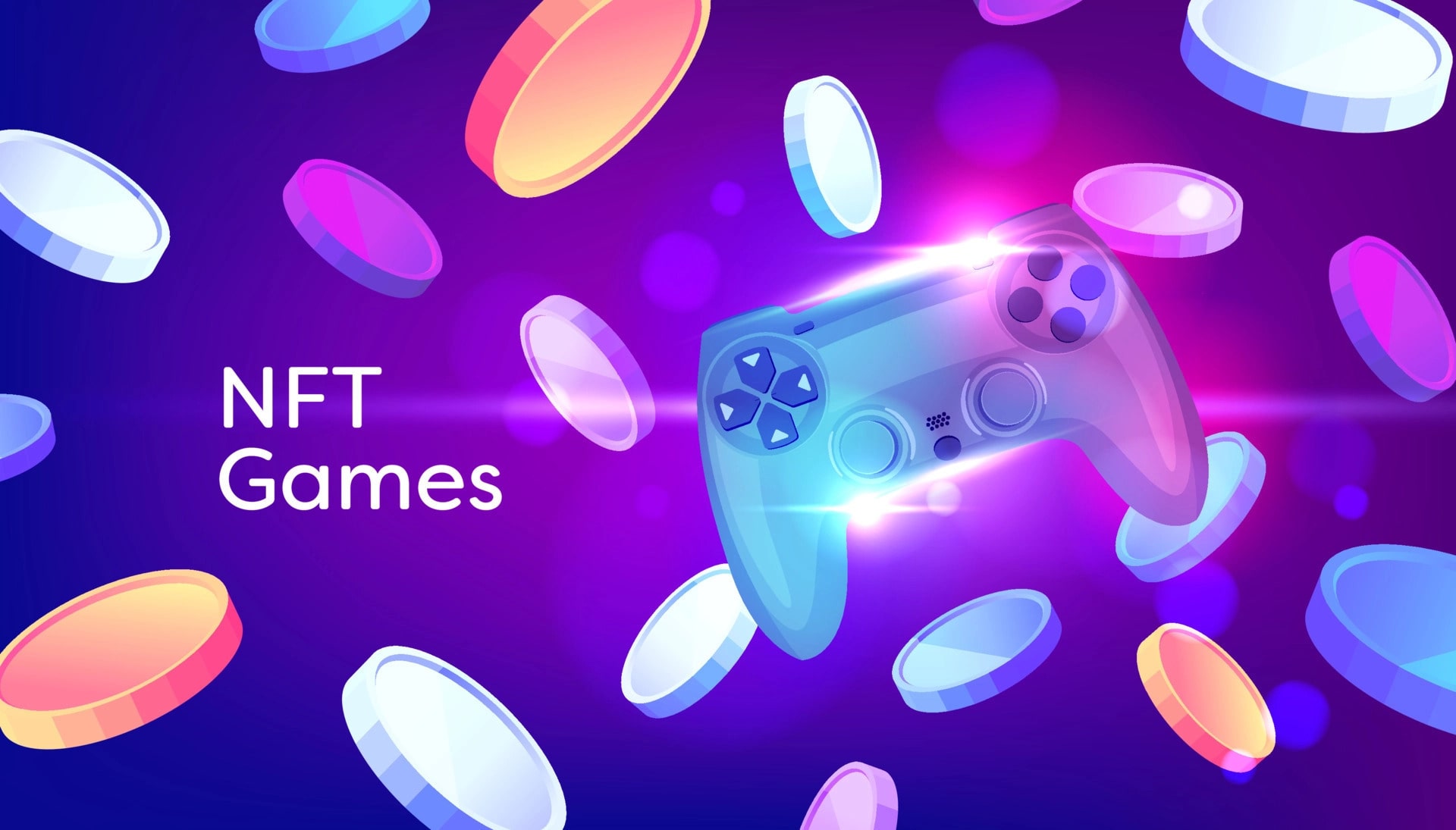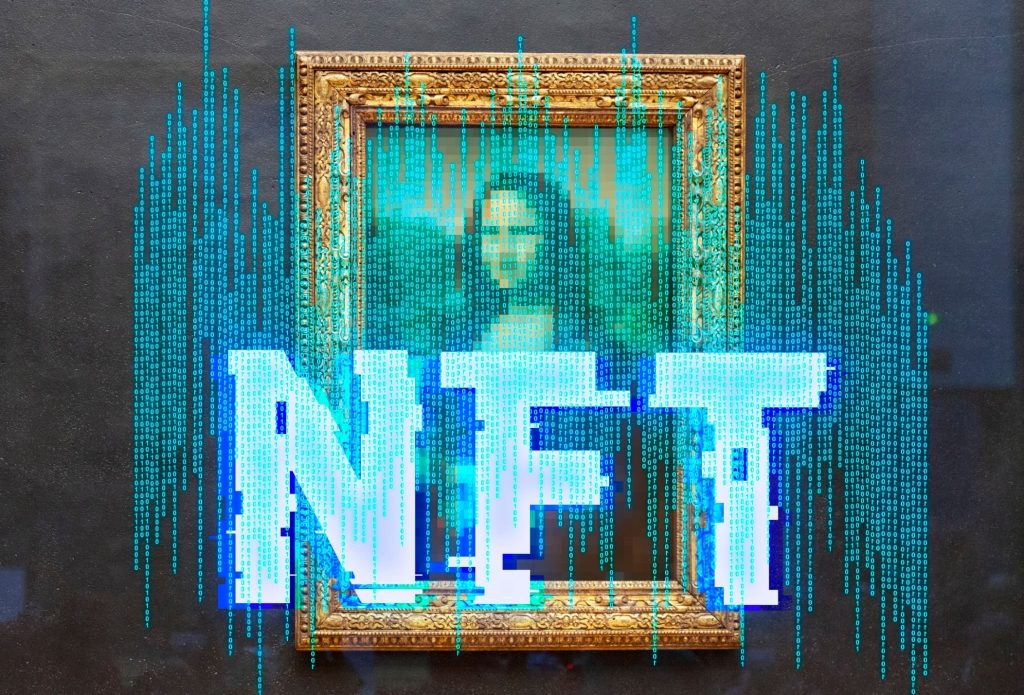The video game industry is a multi-billion-dollar entity that has grown since developing the first video games in the 1970s. Statista projected the gaming market to be worth $268.8 billion in 2025.
The growth will be an increase from $178 billion in 2021. The online global gaming community of different ages, races, countries, and ethnic backgrounds are expected to have significantly contributed to the figures.
Traditional video games primarily operate by perpetuating a flow of value in which players invest their time and money only to increase game developers’ profits.
Players could not monetize in-game prizes or transfer the wins to other games. An opportunity for players to translate their game winnings into real-life rewards came from non-fungible tokens (NFTs), first developed in 2015.
Non-fungible tokens are made using the same programming as cryptocurrencies. In layman’s terms, developers modeled cryptographic assets after blockchain technology.
A digital certificate based on the NFT is in a blockchain that becomes stored in a publicly verifiable distributed database. Multiple game developers today, such as Axie Infinity, utilize NFT blockchain technology.
One might wonder: What is Axie Infinity?
It’s a blockchain game where users can breed and send to battle their game characters.
A Vietnamese gaming company named Sky Mavis, established in 2017 by co-founder and CEO Nguyen Thanh Trung, was the mastermind behind Axie Infinity. The game was an instant hit upon its release in 2021.
How NFTs affect the future of gaming

The NFTs have the distinctive feature of combining virtual and real-world experiences. The digital asset has offered gamers a way to monetize the time and effort spent playing video games.
The NFTs are making gaming a viable career option for many people in developing countries. The NFT games provide a virtual representation of the real world.
The virtual platform provides an ideal space for players to communicate with one another to organize a virtual event, such as a music concert, and trade in other NFTs. The specific benefits of gaming include the following:
1. Amplified interoperability
Interoperability is the ability of different systems to work together despite other functions. Interoperability allows you to use your digital assets (NFTs) on any platform that supports that blockchain, which is one of the most common applications. It’s what enables various platforms to identify your NFTs.
This absence of interoperability, caused by siloed ecosystems, effectively fragments the gaming world, eventually punishing gamers.
Alternatively, games could be designed for interoperability, opening up their ecosystem to network effects as players from other games interact with their application.
The NFT collectors can now trade with various types of cryptocurrencies due to increased interoperability. These cryptocurrencies are in high demand and can be used to buy other in-game items.
2. Ownership of in-game assets
First-person shooter games offer many in-game purchases, such as guns, skins, skills, and vehicles. However, the online game servers may experience downtimes, or the game may be discontinued due to being outdated.
Players spend time and money to acquire the assets but cannot own them outside the game.
The NFTs operate independently of any gaming ecosystem and are stored directly in the blockchain. As a result, no matter what happens to a game, in-game purchases in the form of an NFT can always be purchased, sold, or traded on public online markets.
Furthermore, the ownership of NFTs goes beyond commercial benefits.
Owners can use NFTs on their social profiles to establish themselves as elite gamers or collectors. Gaming NFTs allow owners to extend utility beyond entertainment and become part of a much larger effort to create a distinct digital identity.
3. Transparency of the value of NFTs
The game developers determine the value of game assets. Moreover, the value is only exclusive to the siloed games. The purchases might not be as valuable or rare in the open market compared with their in-game prizes. Finally, game developers restrict players to the asset designs made available in the game.
In-game NFT assets can provide owners with free access to helpful information, such as the rarity of the NFT, the total number of digital assets in circulation, and undeniable evidence of their validity. This level of transparency will significantly increase trust between buyers and sellers, potentially resulting in a thriving secondary market.
The NFTs can provide even more advanced data to avid gamers, including but not limited to, the number of previous owners, average hold time, and sale prices. The more information available about the NFT, the higher the degree of openness in the market.
4. Development of more NFT-based games
The success of Axie Infinity in 2021 created multiple earning possibilities in the gaming world. Axie Infinity tokens – Axie Infinity Shards (AXS) and Smooth Love Potions (SLP) – could be spent in-game and traded for real-world money on decentralized exchanges. Additionally, players could raise, buy, and sell virtual animals known as Axies, which are non-fungible tradeable tokens (NFTs).
The positive reception of Axie Infinity inspired more game developers to create NFT games. Players can earn real money from their achievements and in-game purchases across different gaming platforms designed on similar blockchain technology.
In spite of all the potential benefits NFTs have to the future of gaming, certain drawbacks require attention before this digital asset gets incorporated into the open market.
Demerits of NFTs

1. Digital Copies
A significant demerit of NFTs is the ability of an individual to make a digital copy of another NFT’s content quickly. The token weblink is one-of-a-kind; however, the content to which the link leads is legally and infinitely reproducible.
2. Deletion of NFT content
Aside from duplicating the content, an individual can equally delete it. Furthermore, if the link attached to the NFT happens to expire or if the URL linked to it gets deleted by the website host, the individual will lose ownership.
Conclusion
The NFTs have the potential to reshape the nature of gaming in the foreseeable future in the same way cryptocurrency changed the financial market. Players can’t only earn from NFTs but also build social networks in the process.
There are a few demerits identified in the digital asset. However, this is synonymous with new products in any market. In conclusion, the future of NFTs in gaming is promising at best.
Related posts:
- 5 Reasons Why You Should Create a Bitcoin Wallet on iOS
- Tips to Protect Your Cryptocurrency from Hackers
